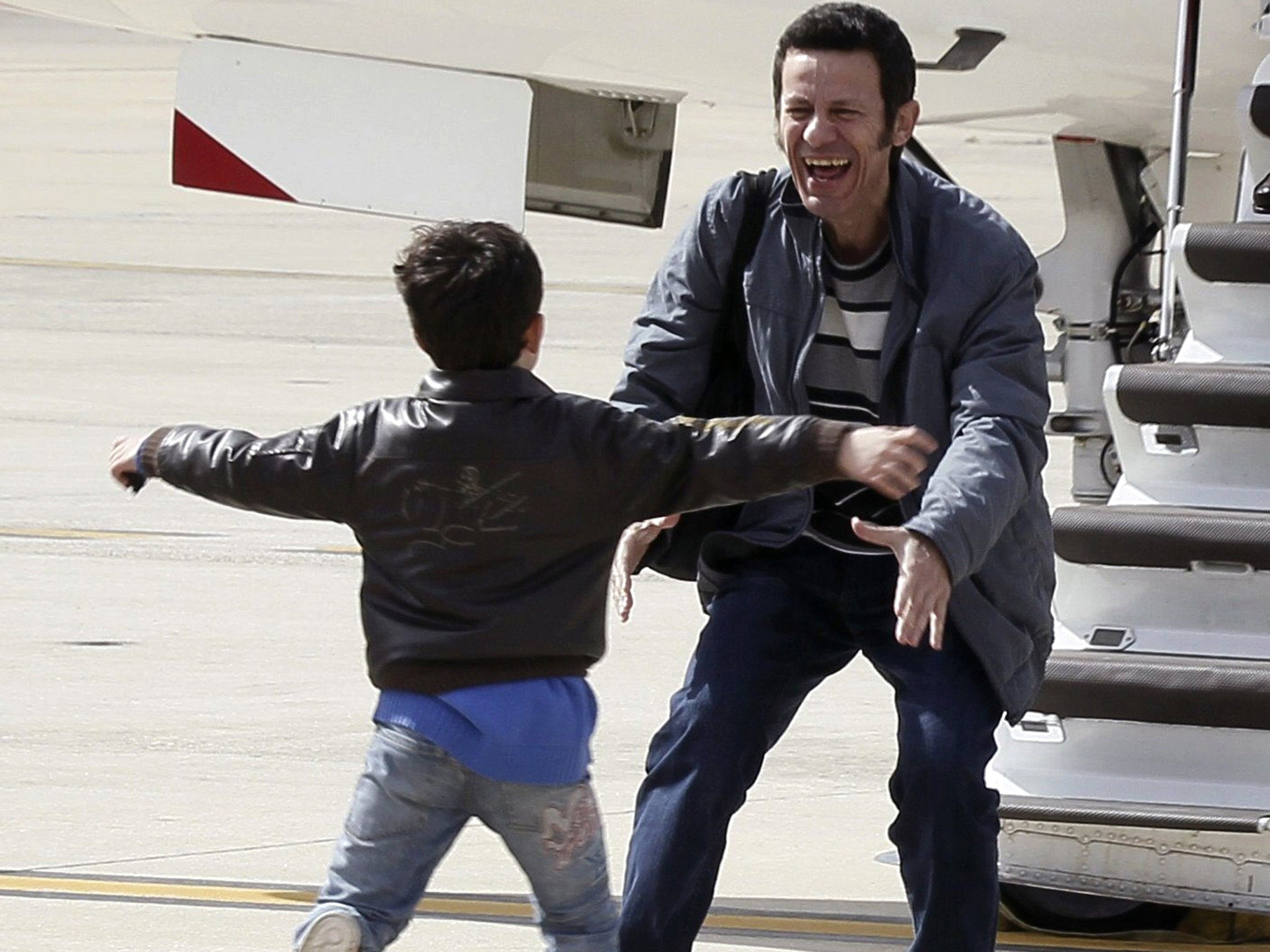Diplomatic Channels: War correspondents can pay a heavy price to discover the truth
It is an example of Javier’s mental toughness that he returned to Syria


The release of Javier Espinosa and his colleague Ricardo Vilanova in Syria is excellent news, not least because it raised hopes for other journalists, more than 30 at the moment, who are hostages in a conflict that has become the most dangerous of all to cover for the media.
This is particularly so for those seeking to report from rebel-held areas where the threat is not only from Assad forces, but al-Qa’ida-linked groups such as the Islamic State of Iraq and the Levant (Isis) which kidnapped Javier and Ricardo.
I have known Javier, a brave, resourceful correspondent with El Mundo, for a while. We travelled together in the early days of the Libyan revolution. The last time I met him was in Gaza during the Israeli offensive in autumn 2011: we talked about two young photojournalists we knew – one British, the other American – who had just disappeared in Syria; they are still missing.
It is an example of Javier’s mental toughness that he returned to Syria after narrowly escaping death in the same attack in Homs that killed our friend Marie Colvin of The Sunday Times and the French photojournalist Rémi Ochlik. The rocket fire had also severely injured photographer and filmmaker Paul Conroy, another friend, who was working with Marie.
Javier and Ricardo were abducted last September near Raqaa. At the time, I was in Aleppo province, nearby, but did not know what had happened until later. The following week, Anthony Lloyd of the The Times had to endure a harrowing few hours being held at an Isis checkpoint in the same area.
The issue of reporting Syria came up two weeks ago when a Russian journalist decided to join me and two colleagues, both Western correspondents based in Moscow, having a drink at the Ukraine Hotel in Simferpol, the Crimean capital.
The journalist complained about the Western media’s coverage of Ukraine and gave Syria as another example of biased reporting. It was unfortunate for the Russian that he worked for the state-owned Russia Today which had journalists resigning on air at the time to protest against the Kremlin’s actions in Crimea. At the end, there was a sudden volte-face: our Russian became very morose that he could not report what he wanted to because he needed to keep his job.
Propaganda had played a significant role in Crimea. One factor for many who voted to join Russia in the referendum was fear that “fascists” and “neo-Nazis” would be rolling in from Kiev to carry out lethal attacks. Sections of the Russian media had played up this fear.
It is not just the Russian state that tries to lay on gloss. As my colleagues and I were expecting ferocious violence in Iraq after the invasion by US and British forces, Washington and London were putting out so-called “good news stories”.
Nor is it just some Russian editors who want their journalists to be propagandists. I remember being at Lashkar Gah, the Helmand capital, in early 2006 just before the deployment of British forces, when news came of the blowing up of the Golden Dome in Samarra, which effectively started the terrible Sunni/Shia sectarian war in Iraq. A journalist from the Sun got a message saying: “Today of all days, we need a good news story from Iraq.”
It was from the newspaper’s then editor. “Look at this, she doesn’t even know which f*****g country I am in,” my friend from Wapping, a good and experienced journalist, shook his head. “And even if I was in Iraq, do they really think I am going to write a ‘good news story’ when dozens and dozens are about to be killed?”
There are journalists who would give in to pressure. But Javier Espinosa is not that kind of journalist; he would be sceptical of official versions, he would try to find out what is really going on, sometimes at considerable risk to himself. That is why he and others like him continue to be so necessary in our trade.
Join our commenting forum
Join thought-provoking conversations, follow other Independent readers and see their replies
Comments
Bookmark popover
Removed from bookmarks